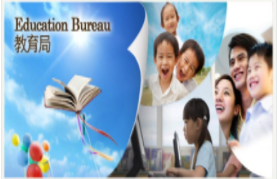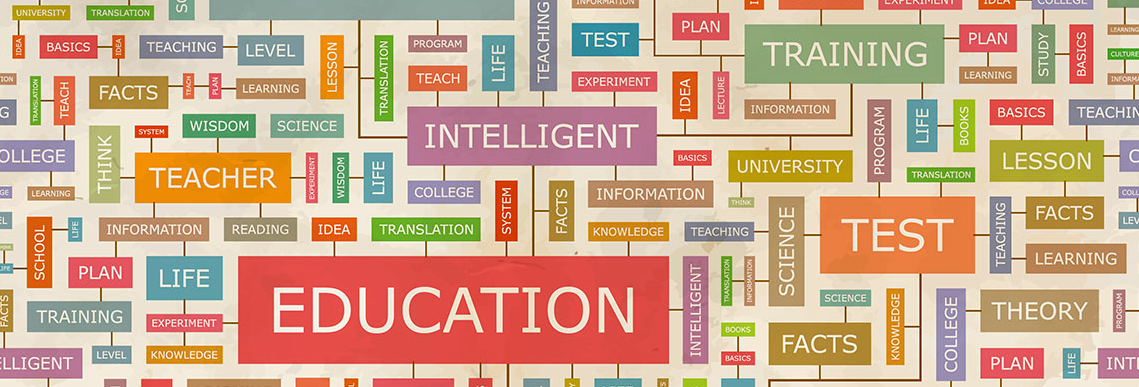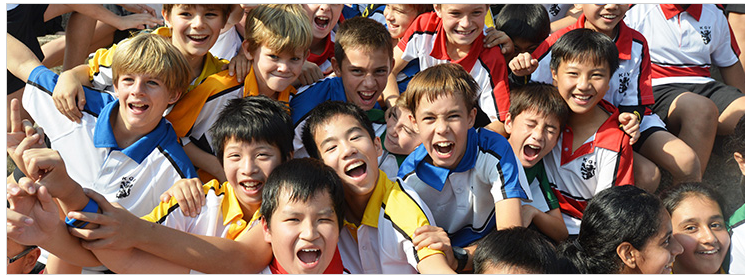
Genernal Outline of Hong Kong Education

In Hong Kong, the Education Bureau is responsible for formulating, developing and reviewing policies, programmes and legislation in respect of education from pre-primary to tertiary level; and overseeing the effective implementation of educational programmmes.
Their goal is to nurture future generations to become citizens who are socially responsible and equippted with a sense of national identity, love for Hong Kong and international perspectives.
Starting from School Year 2008/9,Hong Kong implemented twelve years free education。Local schools can be divided into three categories, namely, government schools, government-funded and subsidized schools managed by voluntary groups, as well as private schools, some of which are government-funded. Government and aided schools to implement government-recommended learning courses. They offer free primary and secondary education.
In addition, there are 51 international schools in Hong Kong (including 15 schools organized by the Association of British Schools), which provide non-local courses mainly for children of overseas families who live in Hong Kong for work or investment.

Hong Kong Education System

Background:
Hong Kong children are headed for six years of primary education from about six years of age. They are divided into morning classes, afternoon classes and full-time classes. Under the auspices of the Government, most primary schools have been taught in Chinese. English is the second language. However, some government-designated schools still use English as the main language of instruction, but the school still uses Cantonese as the main communication language. On the other hand, the class size is probably 30-40 students a class.
The goal of the government is to provide a balanced and diversified school education to meet the different needs of students; to help them accumulate knowledge for future learning and personal growth, to build values, to develop skills; to enhance students' promote bi-literacy (Chinese and English) and tri-lingualism(Cantonese, Mandarin and English) ability.
Current Situation:
After the implementation of the basic education curriculum reform in the 2001/02 school year, the effectiveness of classroom learning and teaching has been improved. Students have benefited from diversified learning activities and have improved their abilities, values and attitudes. More independent in learning. The school will continue to adjust into the central curriculum to meet the needs of students and, on the basis of accumulated strengths and experience, deepen curriculum development, develop students' ability to learn lifelong and promote their full development.
At present, all students are eligible for six years of secondary education (ie three years of junior high school and three years of high school). Students are required to take a public exam at the completion of the High School's curriculum - the Hong Kong Secondary School Diploma Examination. The high school curriculum under the new academic system provides students with a flexible, coherent and diversified learning experience that can cater for the different interests, needs and abilities of students and promote the development of students' all-round development and develop lifelong learning skills. Continue to study, train or work.
The eligibility of the Hong Kong Certificate of Secondary Education has been widely recognized in international benchmarking studies both locally and around the world, including reports from the UK Academic Review Center, the UK University and Institutional Admissions Office. Until January 2015, about 220 overseas institutions accepted this new qualification for admission, including the famous Cambridge University and Yale University, number of these institutions are increasing.

Hong Kong's education has entered a new era. Since 2012, a new academic system has been introduced. The graduation period for undergraduate courses in Hong Kong has been changed from three years to four years. The new system is consistent with the academic system in most parts of the world and offers more opportunities for students to communicate around the world.
Hong Kong's tertiary institutions use the extended one-year study period to adjust courses, interdisciplinary learning, local and worldwide service learning, exchange programs and enriching learning experiences, and cultivate world citizens with academic excellence and international vision.
There are 20 higher education institutions in Hong Kong. These institutions offer a wide range of high quality courses ranging from sub-degree to doctor. In addition, about 20 post-secondary colleges offer locally accredited sub-degree programs.

Powered by MetInfo 5.3.17 ©2008-2020 MetInfo Inc.